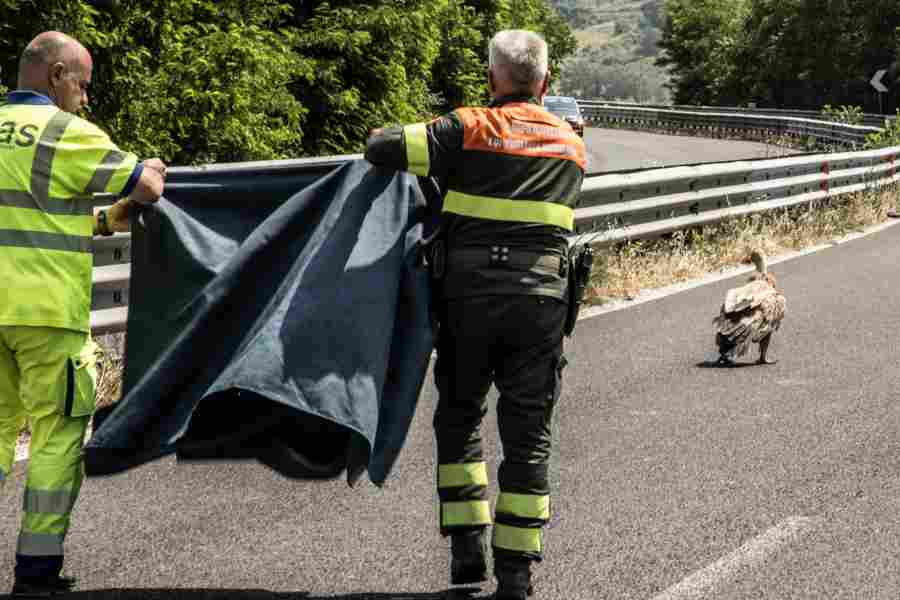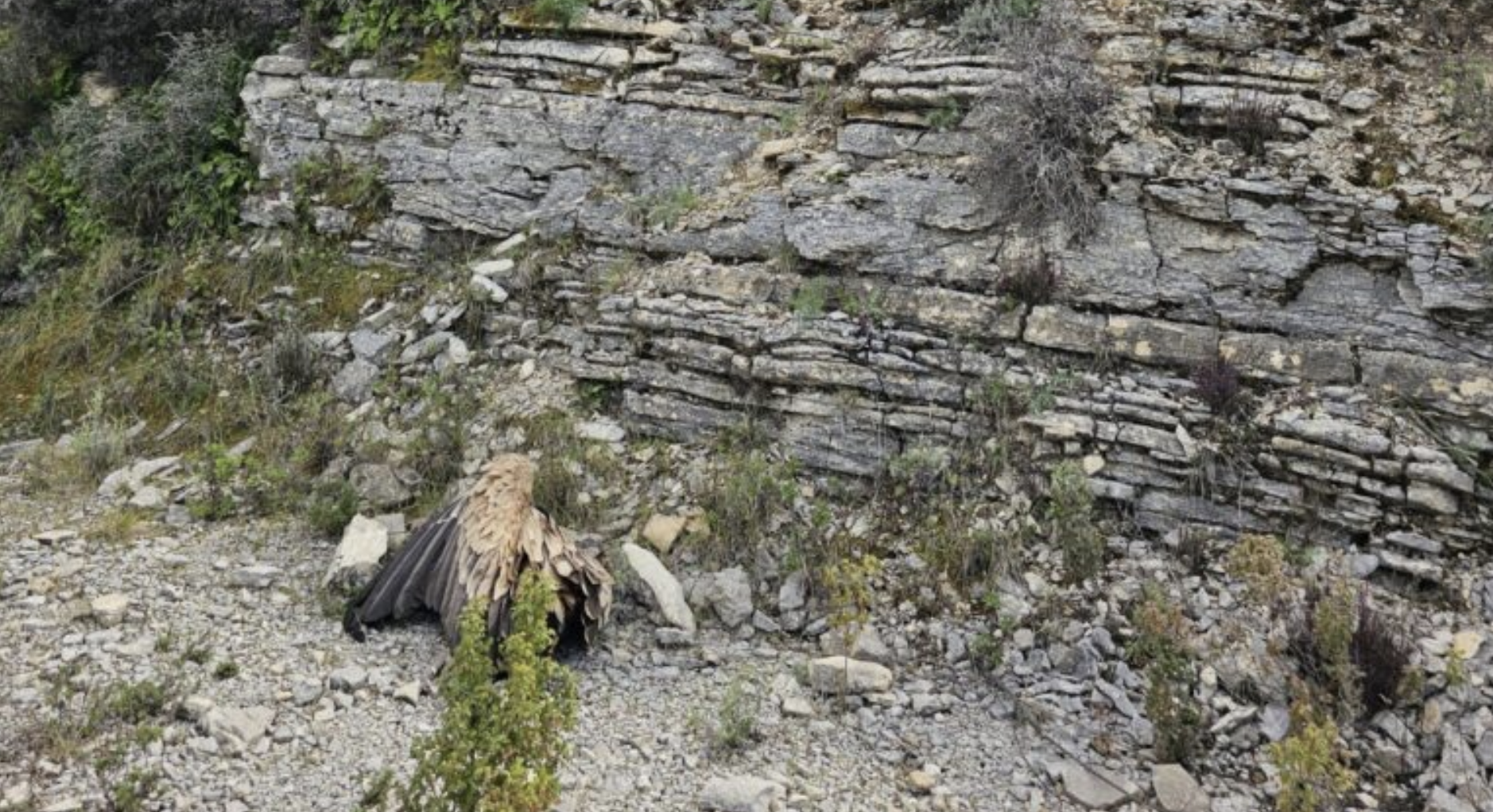The Griffon Vulture (Gyps fulvus) population in Cyprus has been hit hard by a recent wave of deaths due to electrocution incidents on the island’s power distribution network. This alarming trend has resulted in the death of six vultures since 2022, with four fatalities occurring in 2024.
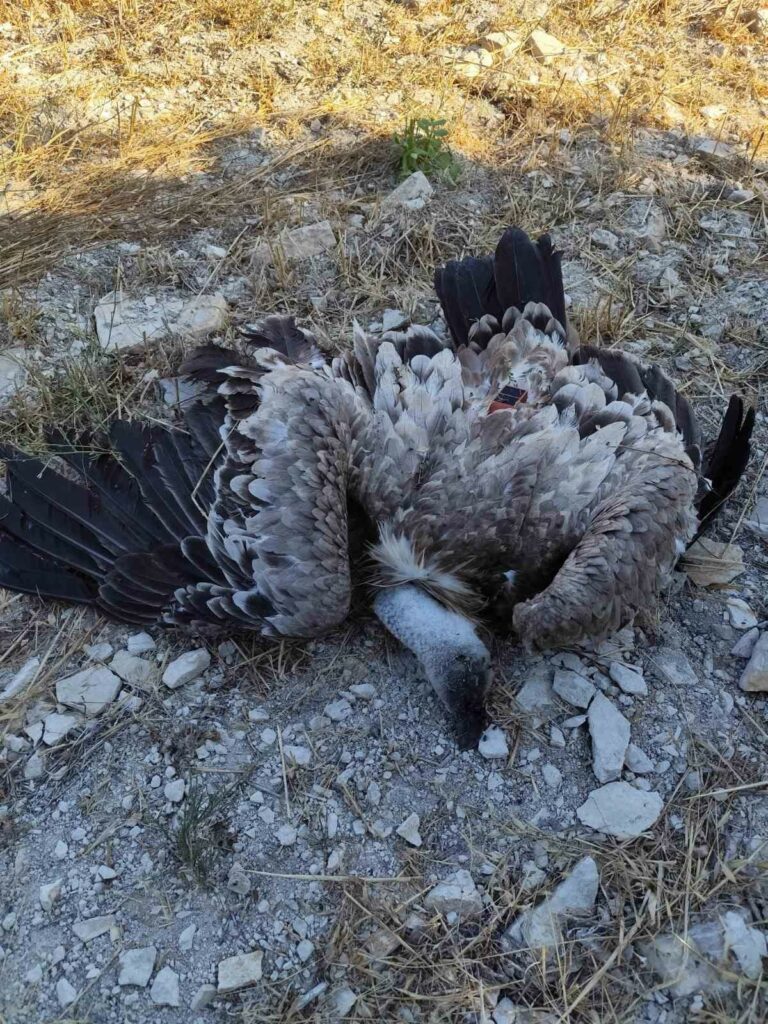
As the vulture population increases and more of these birds are equipped with GPS tags, new details are emerging about the dangers they encounter. Although there were no documented cases of vulture electrocution in Cyprus before 2022, it is now evident that the situation is critical, with electrocution becoming the second most serious threat to Griffon Vultures on the island — a pattern seen in other countries as well.
Two new electrocution incidents in August
The latest victims, two female vultures named “Iris” and “CAN,” were brought to Cyprus from Spain as part of conservation efforts to save the species from local extinction. The first bird died on 2 August near Agios Ioannis in Paphos, and the second on 25 August at an electricity pole that powers a CYTA antenna in Pentalia. Necropsies conducted by the Veterinary Services confirmed electrocution as the cause of death for both birds.
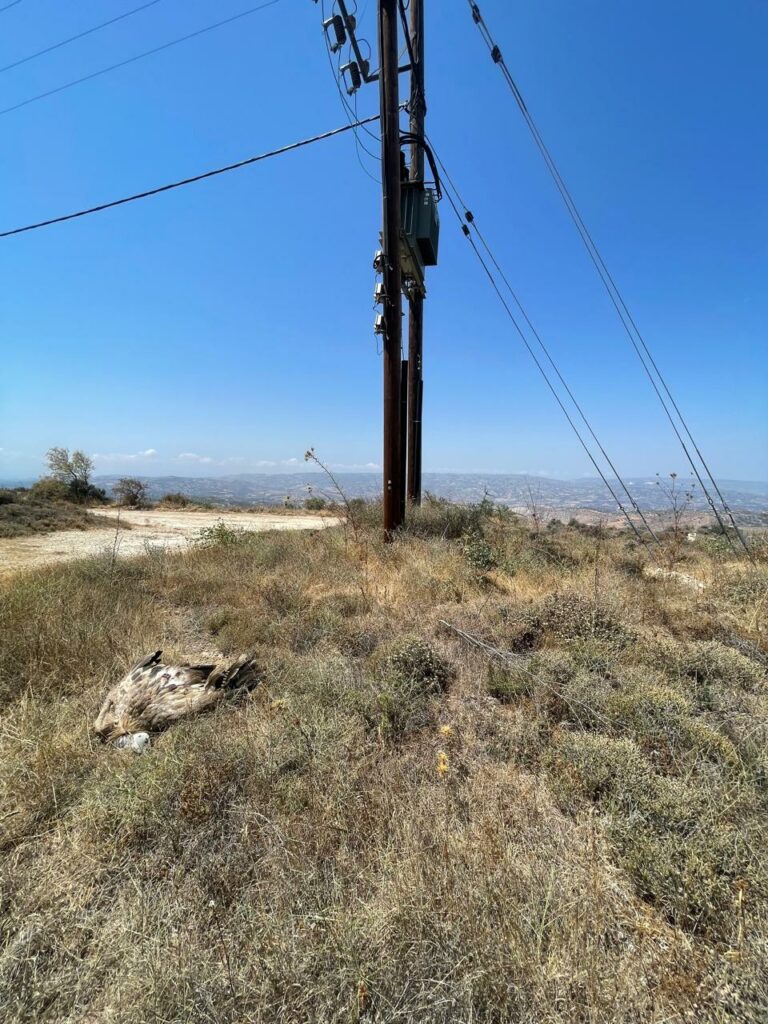
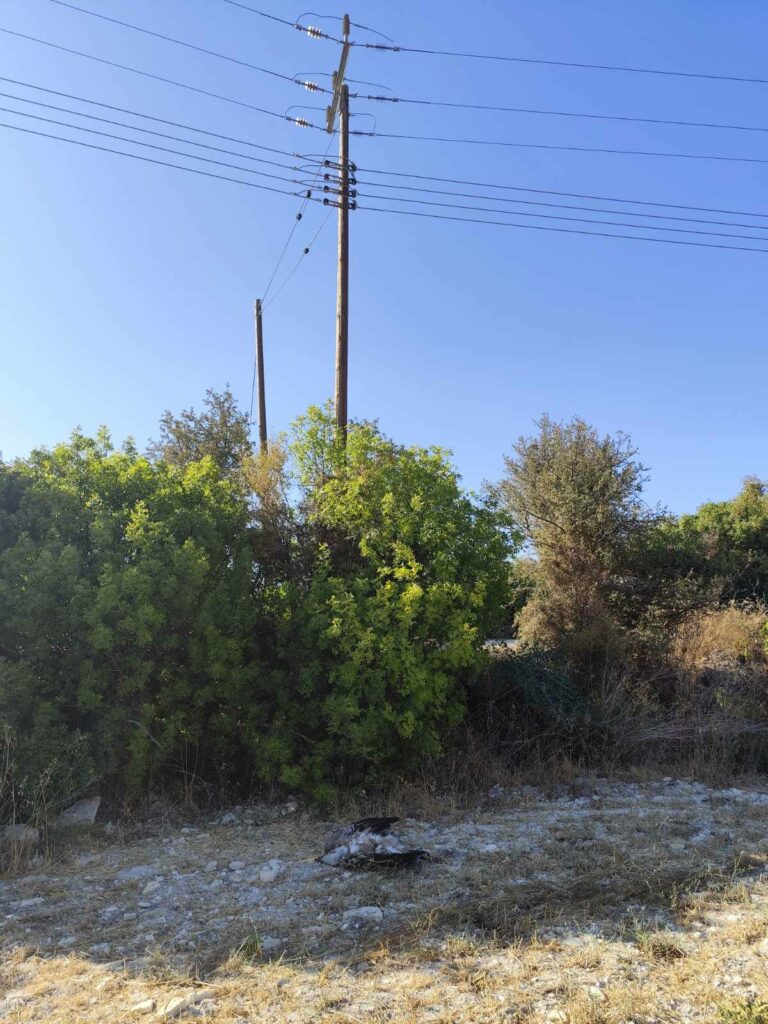
These tragic deaths occurred in areas heavily used by vultures, underscoring the urgent need to insulate or redesign power lines in these critical zones to prevent further losses.
Despite previous efforts by the Electricity Authority of Cyprus (EAC) to insulate poles in Kelokedara following three earlier electrocution incidents, it is evident that the current insulation measures are inadequate.
A growing problem in Cyprus and beyond
Electrocution incidents were unrecorded in Cyprus until 2022. However, with more vultures being tracked and data collected, it has become apparent that the situation is alarming. This pattern is not unique to Cyprus; electrocution is a significant threat to Griffon Vultures in several countries. The recent surge in incidents has raised concerns among conservationists, who are now calling for immediate action to prevent further population decline.
The two recent deaths bring to light a broader issue facing the restocked vulture population in Cyprus. Since the beginning of the LIFE with Vultures restocking programme, 44 vultures have been released into the wild, and 9 have died due to various causes, including four from electrocution. Other causes of death include collision, poisoning, disorientation shortly after release, and weakness soon after release. These figures highlight the multiple dangers facing vultures, with electrocution now accounting for nearly half of all deaths withing the project.
Calls for urgent action
We are calling on the EAC and other relevant agencies to prioritize the insulation or redesign of dangerous power pole structures in areas frequently used by vultures. This need for urgent action is critical to prevent further losses of this already threatened species. Despite recent efforts, the insulation of poles remains insufficient, leaving more vultures at risk of electrocution.
Installing insulation on power poles or replacing them with bird-safe designs are straightforward steps that have been implemented in many European countries and beyond, enabling power networks to coexist with wildlife. It is especially frustrating that these recent deaths could have been prevented if the poles had been insulated back in 2022, when the EAC was first alerted to the dangers posed by these specific poles after the first reported vulture fatality.
The Griffon Vulture population in Cyprus is already under significant pressure due to habitat loss, food scarcity, and illegal poisoning. Electrocution adds yet another layer of danger for these birds. Without immediate intervention, the population could face further decline, threatening the species’ survival on the island.
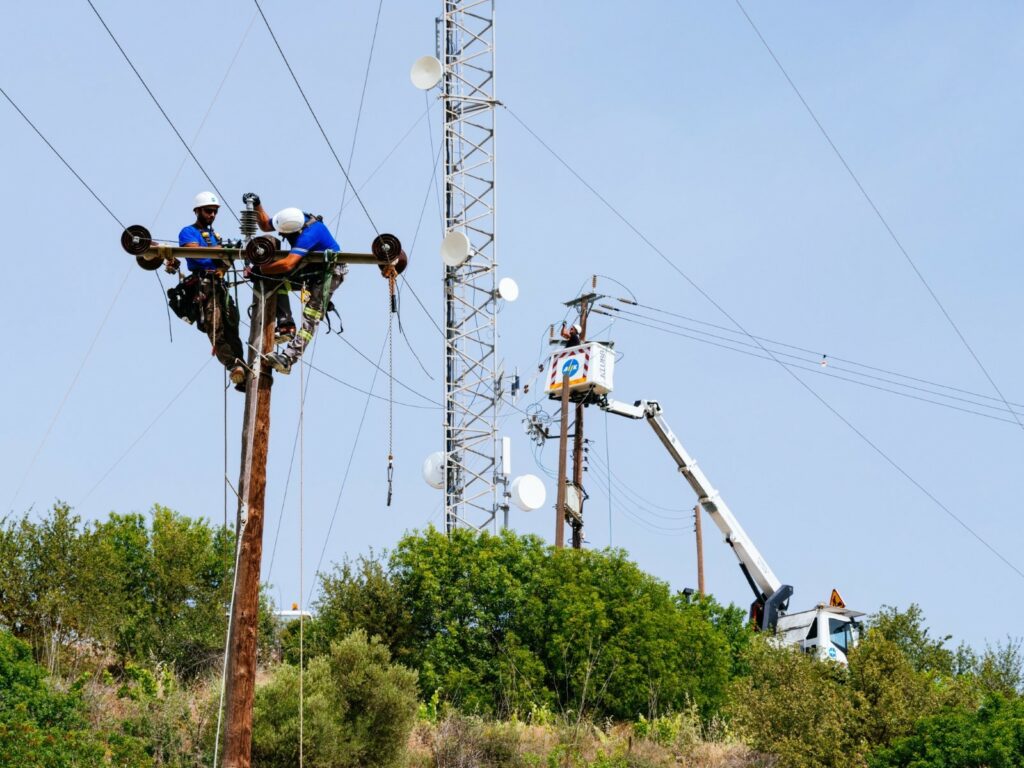
A critical moment for conservation
The deaths of “Iris” and “CAN” are a stark reminder of the fragile state of the Griffon Vulture population in Cyprus. With only a few dozen vultures left on the island, each death is a significant blow to the species’ survival. As we gain more insight into the threats these birds face, the need for decisive action becomes ever more urgent.
The time to act is now. Preventing further electrocutions and ensuring the long-term survival of Griffon Vultures in Cyprus must become a priority for all relevant agencies. Protecting these majestic birds is not just a matter of conservation—it is a matter of preserving a critical part of the island’s natural heritage.
The LIFE with Vultures project

LIFE with Vultures is a targeted conservation project to protect the Griffon Vulture in Cyprus. In this four-year endeavour (2019-2023), BirdLife Cyprus, the Game and Fauna Service, Terra Cypria – The Cyprus Conservation Foundation and the Vulture Conservation Foundation have joined forces to tackle the main threats facing the Griffon Vulture and prevent Cyprus’ most threatened bird of prey from going extinct. The project has a 1,375,861 Euro budget and is co-funded (60%) by the EU’s LIFE Programme.


